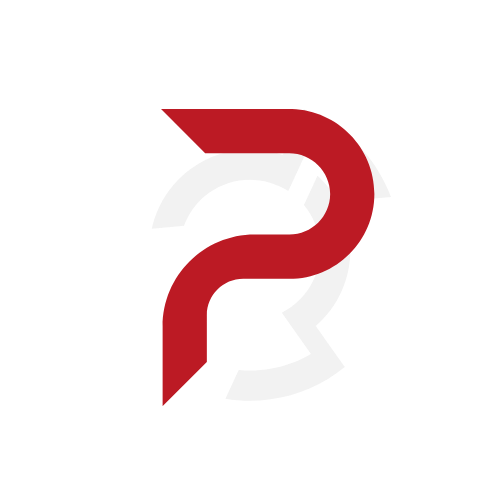From Idea to Success Story: Starting a Business on a Budget and Building Trust from Day One
Starting Out in Business - Helpful Advice from our Experts

Starting a business is a dream for many – a chance to work on your own terms, solve a problem you're passionate about, and create something that reflects your values. But when you're short on funding, that dream can feel distant. The good news? Many successful businesses began with little more than a clever idea, sheer determination, and a strong connection with their audience.
Here’s how to go from a lightbulb moment to a trusted local brand without breaking the bank.
1. Start with a Problem – Not Just a Passion
While passion matters, what really fuels a business is solving a real problem. Ask yourself:
- What problem do people regularly face in your area or industry?
- Can you solve it faster, cheaper, or better than current solutions?
- Is your idea something people would pay for?
Speak to friends, family, or community groups. Listen carefully. Their frustrations may hold the seed of your opportunity. Avoid building a solution and then searching for the problem. Flip that thinking.
2. Test Your Idea – Before You Spend
You don’t need a fancy product or office space to get started. Build a minimum viable product (MVP) – the simplest version of your idea that allows people to understand and test it.
Examples:
- Offer your service free or discounted to a few early customers in exchange for feedback and testimonials.
- Use free tools like Canva or Google Forms to mock up your offer.
- Create a basic landing page (free on Carrd or Wix) explaining what you do, with an option to register interest.
The aim is to learn quickly – what people want, what they’ll pay, and what’s not working.
3. Register and Set Up Essentials
You don’t need to set up a limited company immediately. Starting as a sole trader is fast, free, and easy via HMRC. Once you're earning or want more protection, consider incorporation.
Low-cost essentials:
- Business email: Use a domain (e.g. yourbusiness.co.uk) for around £10/year.
- Business bank account: Some are free, like Starling or Tide.
- Accounting software: Try free tiers of tools like Wave or QuickFile.
- Insurance: Look at public liability or professional indemnity depending on your service.
4. Use Free Marketing to Build Awareness
Marketing on a budget means working smarter, not louder. Start with organic methods before spending on ads.
Top low-cost strategies:
- Google My Business: Free and powerful for local visibility. Optimise your listing with keywords, photos, and regular posts.
- Social media: Choose 1–2 platforms relevant to your audience. Share your journey, behind-the-scenes content, tips, and local news.
- Community groups: Offer advice (not sales pitches) in Facebook groups or local forums. Be genuinely helpful – people remember this.
- Word of mouth: Ask early customers to refer you. Create incentives (e.g. 10% off their next order if they bring a friend).
- Collaborate: Partner with other small businesses to cross-promote. Think a local bakery and florist teaming up for wedding packages.
5. Build Trust – The Secret Ingredient to Long-Term Success
For new businesses, trust is everything. Here’s how to build it even if you’re just starting out:
- Show Your Face: People buy from people. Add your photo to your website and social media. Use your name. Be visible and approachable.
- Use Testimonials Early: Ask your first customers for short quotes about their experience. Even two lines of honest feedback builds credibility.
- Create Helpful Content: Position yourself as a helpful expert. Write blog posts, film simple videos, or create how-to guides. Not only does this help with SEO, but it also shows you're generous with your knowledge.
- Be Transparent: If you’re still learning or evolving, say so. People appreciate honesty over hype. A message like “We’re a small startup, and your feedback helps us grow” humanises your brand.
- Look Professional: Even on a budget, make things look polished:
- Use consistent colours and fonts across social media.
- Avoid spelling errors – they damage credibility.
- Have a clean, mobile-friendly website.
- Use a professional email (not a Gmail or Hotmail address).
6. Refine and Learn Continuously
Your first version won't be perfect. That’s OK. Focus on learning:
- What are customers asking for?
- Where are they dropping off?
- What do they rave about?
Tools like Google Analytics, customer surveys, and one-to-one feedback will help you evolve intelligently.
Don't be afraid to change course if the evidence points that way. Many thriving businesses look very different to how they started.
7. Think Small – Then Scale
You don’t need to serve everyone, everywhere, right away. In fact, starting small can be your superpower:
- Focus on a neighbourhood or specific demographic.
- Offer one product/service and do it exceptionally well.
- Let your local fans become your first ambassadors.
Once you've nailed that, then look to scale. Scaling without trust or systems in place often leads to burnout or reputation damage.
Final Thoughts
Starting a business with little money is entirely possible – thousands of people do it every year. What sets the successful ones apart isn't fancy offices or flashy branding. It's clarity, consistency, community, and trust.
At Puzzle Creative Marketing Agency, we believe small, local businesses have a unique advantage: personal connection. Use it. Lean into what makes your story special. When you’re authentic, helpful, and consistent, customers don’t just buy from you – they root for you.
And that’s how a simple idea becomes a success story.
Want help building trust in your new brand?
Puzzle Creative Marketing Agency specialises in helping local businesses grow with smart, affordable strategies. Get in touch for a free consultation – we’d love to hear your story.










